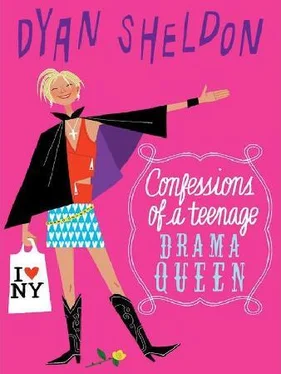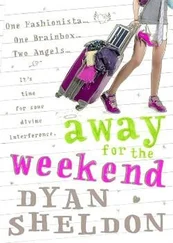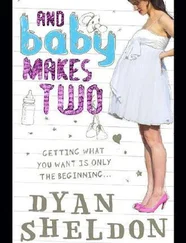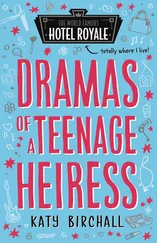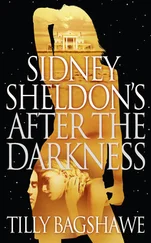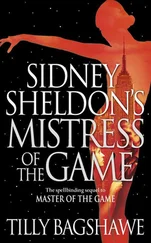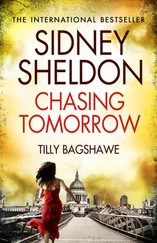“And she always gets it,” I whispered to Ella.
Carla laughed with what passed in her for good nature. It sounded like a knife going through live tissue.
“My parents didn’t raise any losers,” said Carla.
Ella gave me a look. I could tell from the way her mouth was turned down that Ella thought that my parents had.
Perhaps it was that look of futility and hopelessness on the face of the best friend I have ever had; perhaps it was the knowledge that – even if they didn’t know it – the rest of the student body was depending on me to strike the first blow for freedom from the tyranny of Carla Santini; perhaps it was the sense of outrage I felt over Carla Santini’s backstage manoeuverings; perhaps it was a combination of these things, but even though my grief still flowed through me like ice water, I forced myself to rally in the afternoon. I was now more determined than ever. The only way Carla Santini was going to get that part was if she killed me.
I was a little late for the auditions because I had to go to the girls’ room after English to touch up my make-up. Mrs Baggoli broke off when I burst through the door of the auditorium.
“You’re just in time, Lola,” boomed Mrs Baggoli. “I was telling the others about the idea I’ve had for our production of Pygmalion .”
“The others” were my fellow drama club members, all of whom were clutching their scripts and watching me walk down the middle aisle. All, that was, except Carla Santini. As amazing as it was for her to play co-star, Carla was gazing raptly at Mrs Baggoli as though Mrs Baggoli were God and she were Moses.
Relief swept through me with such force that I almost felt weak. It was Mrs Baggoli’s idea we were going with, not Carla Santini’s. I knew Mrs Baggoli couldn’t be fooled!
Before I had a chance to ask Mrs Baggoli what her idea was, she told us.
Mrs Baggoli had decided to set Pygmalion in modern-day New York. Henry Higgins would be a professor at New York University and Eliza Doolittle would be a check-out girl in a supermarket. The revised scripts would be ready by the end of the week. For now, we’d just wing it.
I felt like I’d fallen down the rabbit hole with Alice. I glanced around at my fellow thespians. They were all looking serious and nodding their heads.
Carla Santini went off like the fountain at Lincoln Center.
“What a brilliant idea!” she shouted. “This will give the play a new resonance, an immediacy for today!”
“And it also means we won’t have to put on those stupid accents,” muttered one of the boys.
I gaped in horror at my favourite teacher. “You mean it’s your idea?”
“Yes, Lola,” said Mrs Baggoli. She gave me an amused look. “I know I’m just a high-school teacher, but I am capable of thought.”
There was a ripple of laughter.
I laughed along with my usual good humour. “Oh, I know that,” I said quickly. I turned up the wattage on my smile. “It’s just that Carla said at lunch that it was her idea that’s all. That’s why I was surprised.”
Mrs Baggoli looked from me to Carla. “Oh, really?”
Carla gazed back at her with the innocence of an angel. “I don’t know what she’s talking about, Mrs Baggoli.” She shrugged, an angel trying to understand the workings of the treacherous human mind. “She must have been eavesdropping when I was telling my friends about your idea at lunch and misunderstood…” Her words trailed off meaningfully. And gotten it wrong as usual.
I was about to explain that I hadn’t gotten it wrong, that Carla presented Mrs Baggoli’s idea as her own, but Mrs Baggoli didn’t give me a chance.
“Let’s start with Colonel Pickering, shall we?” she asked, and she picked up her script and sat down.
Because the drama club is small, everyone tries out for a major role. After she decides who’s gotten the leads, Mrs Baggoli assigns the minor parts. Anyone who’s left over gets to be stage manager, or understudy for the entire play, or something like that.
After Colonel Pickering, we went to Henry Higgins. And then we got to Eliza herself.
Susan Leder and Janeann Simmons went first, with all the passion and enthusiasm of soldiers crawling out of a foxhole to certain death by enemy fire.
At last I took my place on the stage. I didn’t really need the script because I already knew most of the part by heart, but I held it in front of me anyway. For effect.
“I’m ready whenever you are,” called Mrs Baggoli. “Begin with ‘You got no right to touch me’.”
I glanced at my script. What Eliza actually says (whimpering) is, “Nah-ow. You got no right to touch me.” I took a deep breath. I looked straight at Mrs Baggoli.
“Nah-ow,” I said in an accent that would have made Henry Higgins jump for joy. “You got no right to touch me.”
You could hear everyone making an effort not to laugh.
Except Mrs Baggoli and Carla Santini.
“No, Lola,” said Mrs Baggoli between hearty chuckles. “It’s set in New York now, remember? You can drop the cockney. Try it again.”
I nodded like the true professional I am. I repeated the line in my head. I took another deep breath.
“Nah,” I said. “Ya got no right t’ touch me.”
This time everyone laughed; though no one louder than Carla Santini, of course.
“Lola,” gasped Mrs Baggoli. “You’re not trying out for Serpico . Let’s do it again.”
I walked over to the edge of the stage. “But Mrs Baggoli, I don’t know what this girl is like any more. I knew who she was when she was an English flower-seller, but I don’t have a clue now.”
Mrs Baggoli’s smile thinned slightly. “I thought this was going to make it easier, not harder,” she announced.
“Yeah, I know.” I shook my head. “But the thing is, I have to know something about this girl.” How could I do Eliza’s accent if I didn’t know anything about her? It was like painting the portrait of someone you’d never seen. “Is she Italian? Irish? Black? Puerto Rican? Vietnamese? Thai? Serb? Czech? Russian?” All Mrs Baggoli had to do was ask and she would have it. After all, I’d lived in New York all my life – excepting my nearly one year in the wasteland of Deadwood – there wasn’t an accent ever heard in those grand canyons of the metropolis that I couldn’t imitate.
“What about Polish?” shouted Bryan Perkowski. “What do you have against us?”
“Never mind the Poles,” said Beth Millstein. “What about the Jews? You have something against the Jews?”
“You know,” chipped in Carla, “she could be Korean. There are lots of Koreans in New York, aren’t there, Lola?”
Mrs Baggoli clapped loudly. “Let’s all settle down, shall we?” She smiled at me. “Her name’s Doolittle , Lola,” said Mrs Baggoli. “She’s just a poor white girl who was born in New York. Use your own accent.”
Nodding, I went back to my place on the stage. I closed my eyes, imagining myself in a red jacket with a name-tag pinned to the pocket: Hi! My name’s Liz . I heard the Muzak and the rumble of shoppers’ conversations; I heard someone drop a bottle of oil on aisle three; I heard kids whining and the packers fooling around; I heard people grumbling about the prices and the state of the tomatoes. I waved a cucumber over the scanner. My fingers touched the keys of the register. I thought about my father, Mr Doolittle. My father was a garbage man and a hopeless drunk. My mother died when I was little, probably from drugs. I left home when I was sixteen. I shared a grungy apartment with two other check-out girls who also came from dysfunctional families. There was a boy I liked who worked on one of the delivery trucks. He had three tattoos and a gold nose ring. I could see this boy clearly. His name was – I opened my eyes. I had no idea what his name was. It could be Tom, or Tony, or Jesus, or Vinny, or Joseph, or Onion for all I knew.
Читать дальше
